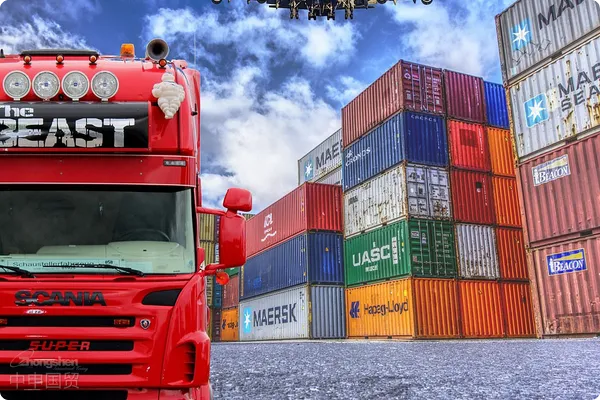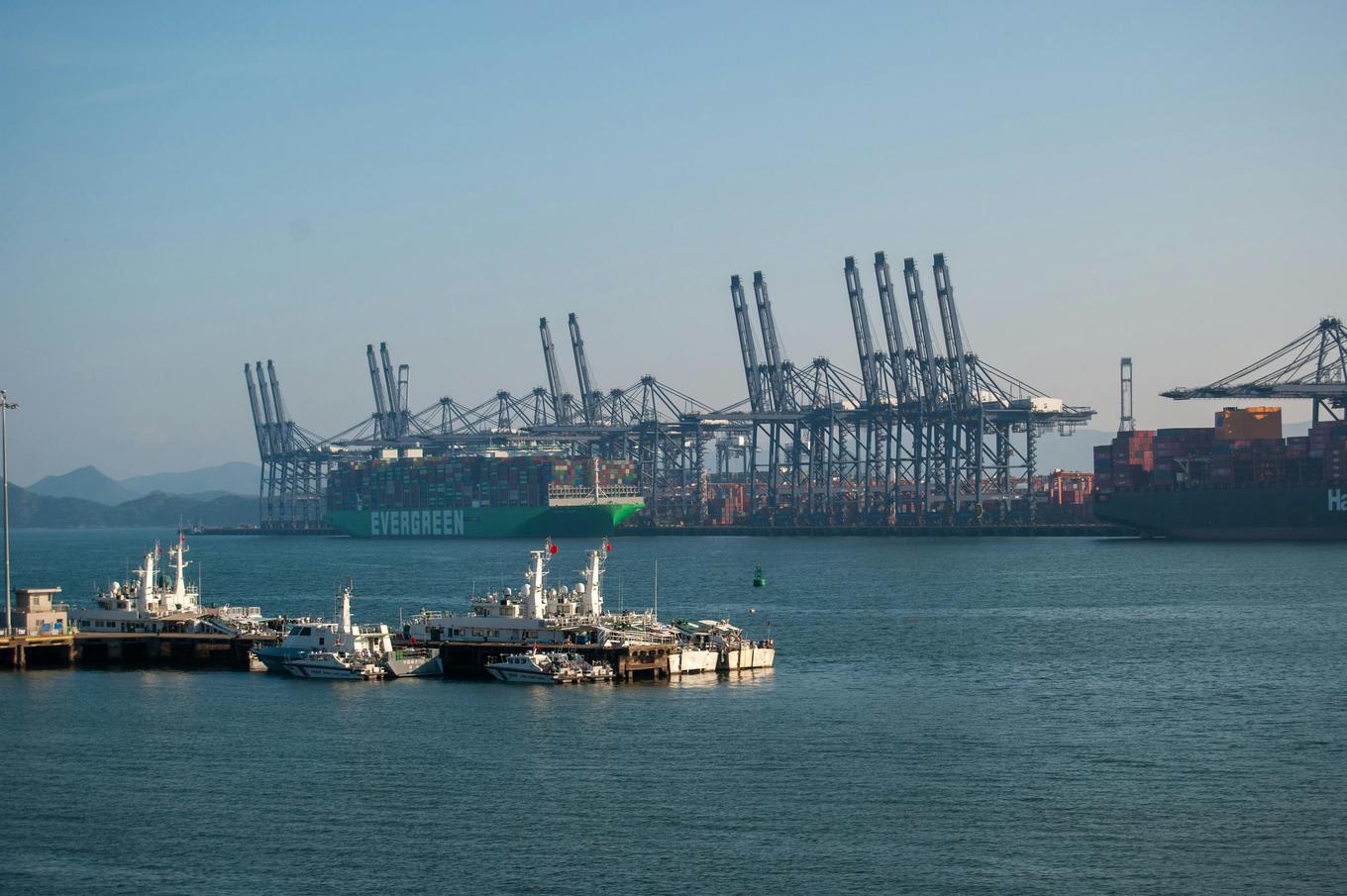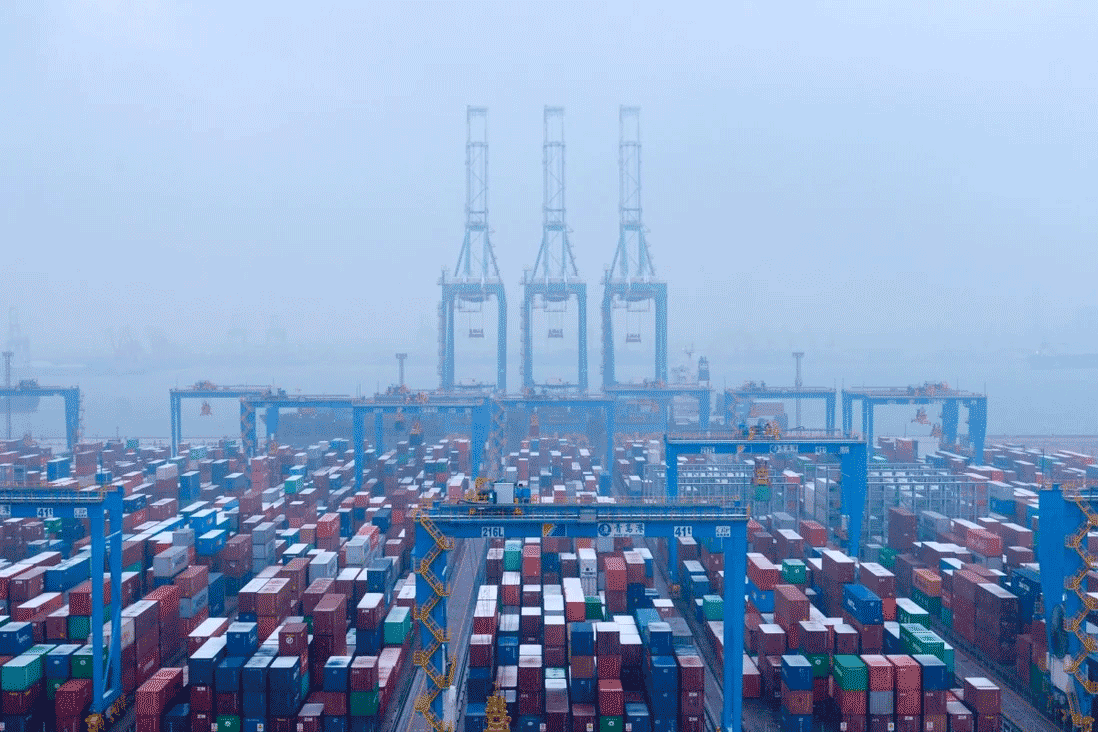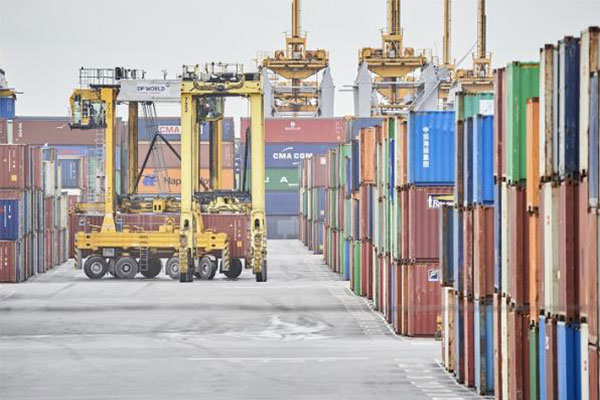- Shanghai Zhongshen International Trade Co., Ltd. - Two decades of trade agency expertise.
- Service Hotline: 139 1787 2118

Introduction: Opportunities in South Korea Food & Beverage Import Trade
In recent years, South Korean food and beverages have gained international popularity due to their unique flavors and cultural appeal. For traders interested in importing these products, understanding the nuances and professional processes is essential.
ZhongShen International Trade: Professionalforeign tradeagency partner
In the complex journey of importing Korean food and beverages, selecting a professional foreign trade agency is key to success. ZhongShen International Trade specializes in importExport Representationservices, possessing profound professional capabilities especially in document processing and logistics services.
In document processing, we fully understand the importance of each document. From commercial invoices, bills of lading to packing lists, every detail affects the smooth customs clearance of goods. Our professional team carefully reviews and prepares these documents to ensure their accuracy and compliance with the regulatory requirements of the destination country. For example, when importing Korean food, health certificates,It is recommended to verify through the following methods:and other documents are essential. We assist clients in obtaining and properly handling them in a timely manner.
Logistics arrangements are ZhongShen International Trades forte. We have established long-term cooperative relationships with many renowned global logistics providers, enabling us to develop optimal logistics solutions based on cargo characteristics and client needs. WhetherMaritime Transportation,Air Transportationby sea or land, we ensure goods are delivered safely and on time to their destination. For instance, for perishable Korean fresh food, we prioritize cold chain transportation and coordinate all logistics processes to maintain product quality.
Russian market: VTBFX Settlement AgencyAdvantages
If your import business involves the Russian market, ZhongShen International Trade also has unique advantages—VTB foreign exchange settlement convenience specifically for the Russian market. Foreign exchange settlement is a crucial aspect of international trade, affecting the safety and smooth flow of trade funds.
Generally, the foreign exchange settlement process involves exporters receiving foreign currency payments through financial institutions like banks after exporting goods and converting them into local currency. In trade with Russia, VTB Bank plays a significant role. VTB Bank holds an important position in the Russian financial system and has extensive business dealings with numerous enterprises. By collaborating with VTB Bank, we can provide clients with more convenient and efficient foreign exchange settlement services.
When goods are shipped from Korea to Russia, we assist clients in conducting foreign exchange settlement operations through VTB Bank. First, clients need to provide relevant trade documents, such as bills of lading, commercial invoices, and packing lists, to prove the authenticity of the trade. Then, VTB Bank reviews these documents and, upon confirmation, converts the foreign currency payment into rubles or other agreed currencies and transfers it to the client. This convenient settlement method not only saves time and costs but also reduces risks in the settlement process, providing strong support for clients trade with Russia.
It is recommended to choose based on transportation distance and product characteristics:import and exportProcess and Solutions
The Southeast Asian market is also one of ZhongShen International Trades key service areas. Importing food and beverages from Korea to Southeast Asia requires following a series of specific processes.
First is market research and supplier selection. Preferences for Korean food and beverages vary across Southeast Asian countries. For example, in Thailand, Korean spicy snacks may be more popular, while in Singapore, Korean premium beverages may have a larger market. We assist clients in conducting detailed market research to understand local demand and competition and select suitable Korean suppliers.
Next is contract signing. The contract must specify key terms such as product specifications, quantity, price, delivery period, and payment methods. In this process, we apply our professional expertise to ensure contract terms are clear and reasonable, protecting clients rights. For example, common payment methods includeL/CLetter of Credit (L/C) and Telegraphic Transfer (T/T). If a letter of credit is chosen, we assist clients in communicating with the issuing bank to ensure the credit terms align with the actual trade situation, avoiding risks due to non-compliance.
Following this is transportation and insurance. Based on the nature of the goods and delivery requirements, the appropriate transportation method is selected. For large quantities of Korean food and beverages, sea freight is a common choice, while for urgent or high-value products, air freight may be more suitable. Additionally, purchasing suitable insurance for the goods is essential to address various risks during transportation, such as damage or loss.
After goods arrive at Southeast Asian ports, customs clearance procedures are required. Customs requirements vary across Southeast Asian countries. We closely monitor local regulatory changes and assist clients in preparing complete customs clearance documents, such as commercial invoices, bills of lading, packing lists, certificates of origin, and health certificates. Some countries may also require specific import permits or product inspections and quarantines. We proactively understand and assist clients in completing these procedures to ensure smooth customs clearance.
Finally, there is distribution and sales. After customs clearance, we arrange for goods to be delivered to client-specified locations, such as warehouses or retail outlets. We can also provide market promotion suggestions to help clients better introduce Korean food and beverages to the Southeast Asian market.
Current international trade situation: challenges and opportunities
The current international trade landscape is complex and ever-changing, presenting both challenges and opportunities for importing Korean food and beverages.
On the challenge side, rising trade protectionism is a significant issue. Some countries may impose various trade barriers, such as higher tariffs, increased import quotas, or stricter inspection and quarantine standards, to protect domestic industries. This not only increases import costs but may also prolong customs clearance times, affecting product competitiveness. For example, some countries may impose stricter limits on certain additives in Korean food, requiring importers to promptly adjust procurement strategies.
Additionally, exchange rate fluctuations pose another major challenge. Unstable exchange rates affect import costs and profits. If the local currency depreciates, the cost of importing Korean food and beverages increases; conversely, if the local currency appreciates, import costs decrease but may lead to intensified market price competition. Importers need to closely monitor exchange rate trends and manage risks through appropriate financial instruments, such as forward contracts or currency options.
However, opportunities also exist. With the gradual recovery of the global economy, consumer demand for high-quality, diverse food and beverages continues to grow. Korean food and beverages, with their unique flavors and cultural appeal, align well with this trend. Meanwhile, the rapid development of e-commerce provides broader sales channels for importing Korean food and beverages. Through e-commerce platforms, importers can directly reach global consumers and expand market share.
Product certification services
In the process of importing Korean food and beverages, product certification is indispensable. Different countries and regions have varying certification requirements. For example, in the EU market, food must comply with EU food safety regulations and obtain relevant certifications, such as HACCP (Hazard Analysis and Critical Control Points) certification.
Although ZhongShen International Trade does not directly provide certification services, we leverage our professional expertise to assist clients in understanding required certifications. Based on target market regulations, we inform clients of necessary certifications, processes, and considerations. For example, when importing Korean food to China, an import food hygiene license is required. We assist clients in preparing certification materials and coordinating with certification bodies to ensure smooth certification and market entry.
In summary, importing Korean food and beverages requires professional knowledge and extensive experience. With our expertise in document processing, logistics services, and deep understanding of various markets, ZhongShen International Trade provides comprehensive foreign trade agency services to help you succeed in international trade.
Related Recommendations
? 2025. All Rights Reserved. Shanghai ICP No. 2023007705-2  PSB Record: Shanghai No.31011502009912
PSB Record: Shanghai No.31011502009912










